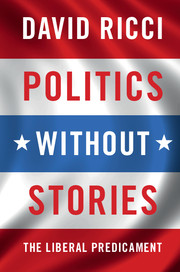6 - Shklar's Fear
Published online by Cambridge University Press: 05 August 2016
Summary
Now I am become Death [Shiva], the destroyer of worlds.
The Bhagavad-Gita, quoted by Robert Oppenheimer after witnessing the world's first nuclear explosion at Alamogordo, New Mexico on July 16, 1945.Kloppenberg argues that Obama's liberalism is pragmatic. In support of that thesis, he emphasizes the President's philosophical aspirations. These presumably flow from what Obama learned in school, the great writers he studied, the books he read, and how he related to them. Other liberal presidents, politicians, and journalists can be seen as expressing some of the same sentiments.
There is, however, a second scholarly thesis about what liberalism is. It draws our attention to where liberals direct their philosophical pragmatism. That is, it describes the conditions they are likely to address and, if troublesome, seek to improve. According to this thesis, liberalism is driven by what political scientist Judith Shklar called “fear.” That is why I opened this chapter with Robert Oppenheimer's anguished warning about the awesome force that modern science has unleashed and that modern people must somehow control.
Fear
In an essay entitled “The Liberalism of Fear,” Shklar claimed that liberals are people in modern history who advocate overthrowing various forms of what they regard as tyranny. These might include witch trials, torture, public executions, lettres de cachet, taxation without representation, naval impressments, slavery, and Native American displacement. And they might move on to lynchings, railroad rebates, municipal corruption, child labor, “yellow dog” contracts, concentration camps, female mutilation, ethnic cleansing, crony capitalism, deindustrialization, mandatory prison terms, homophobia, and more. All of these existed either during the Old Order or in other places later.
Shklar did not say so but there is no grand narrative here because, as generations pass, liberalism targets different forms of tyranny according to time and place. That is why – again not noted by Shklar – intellectual historians like Alan Ryan are unable to list which notions, if any, are shared by great exemplars of the liberal persuasion such as John Locke, Adam Smith, Thomas Jefferson, John Stuart Mill, Isaiah Berlin, and John Rawls.
Differences like these aside, from historical examples Shklar regarded liberals as people who do not know what they do want together but rally around what they do not want.
- Type
- Chapter
- Information
- Politics without StoriesThe Liberal Predicament, pp. 96 - 107Publisher: Cambridge University PressPrint publication year: 2016



